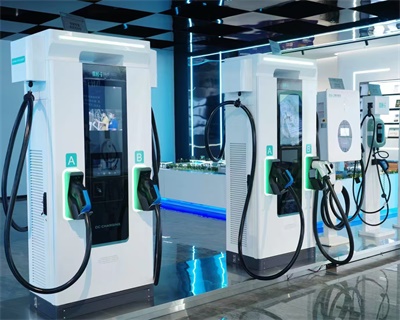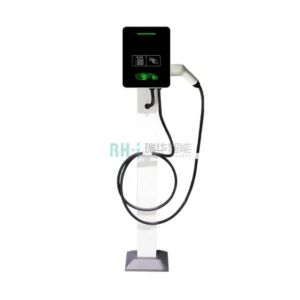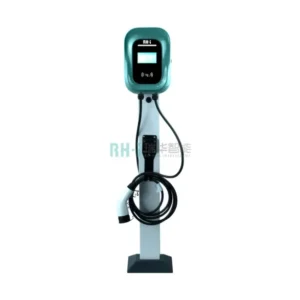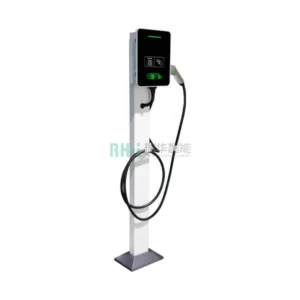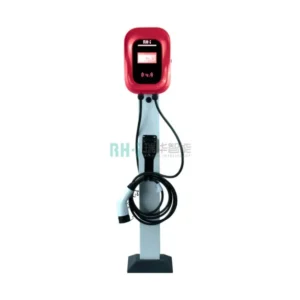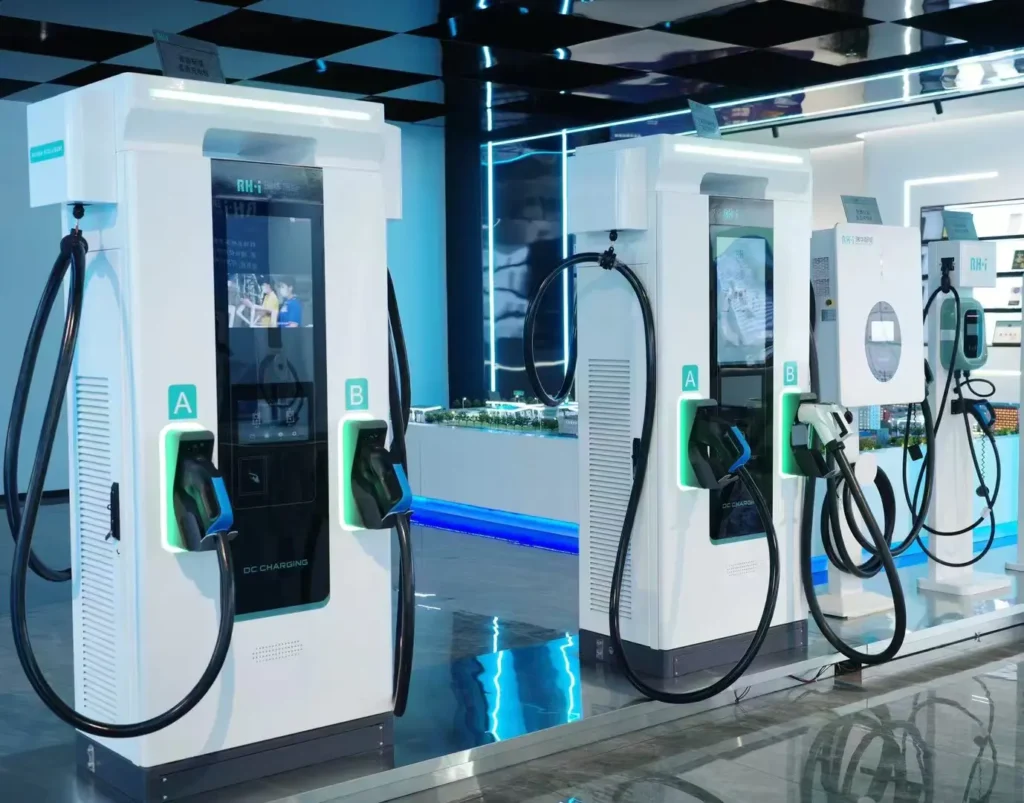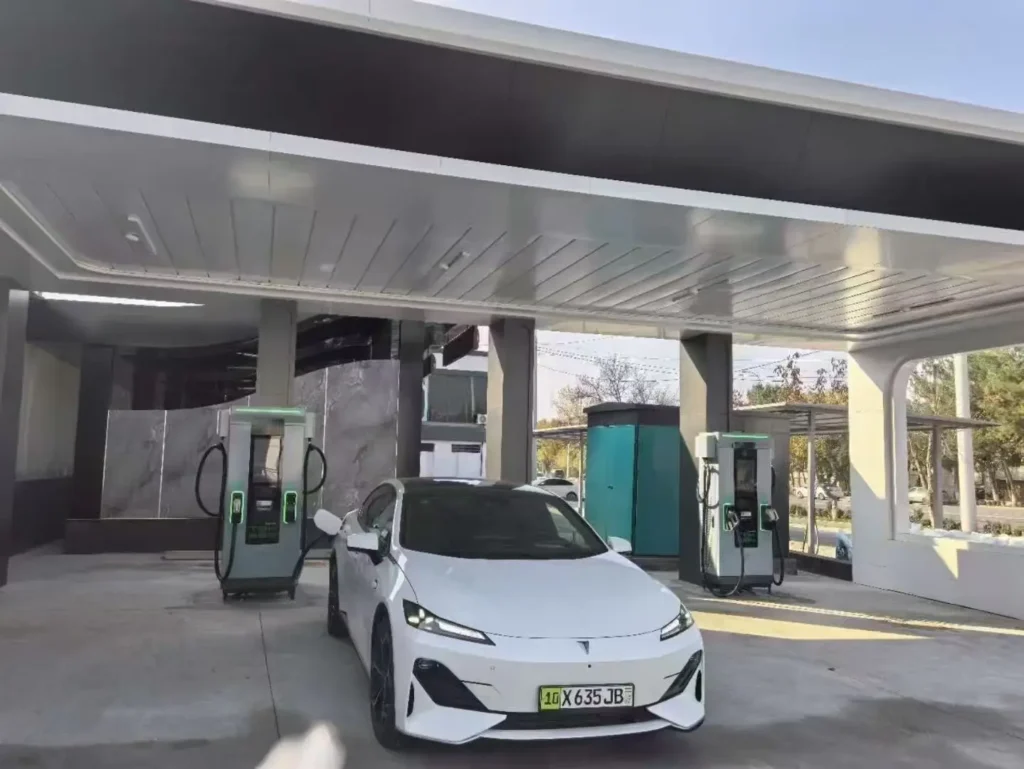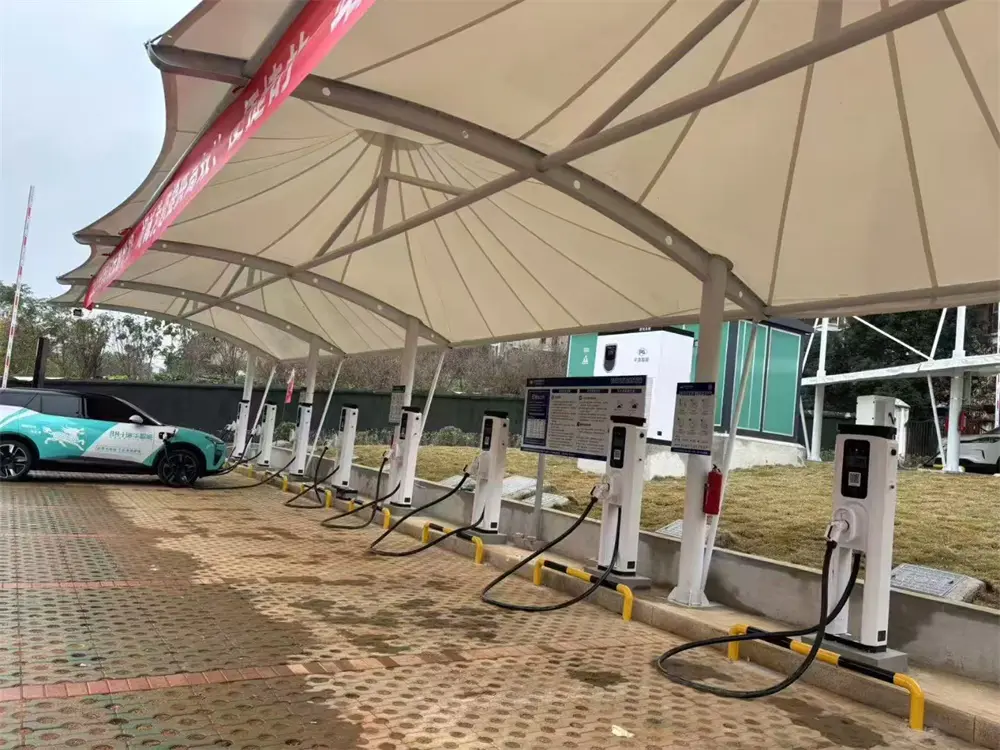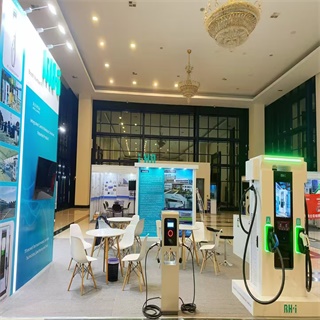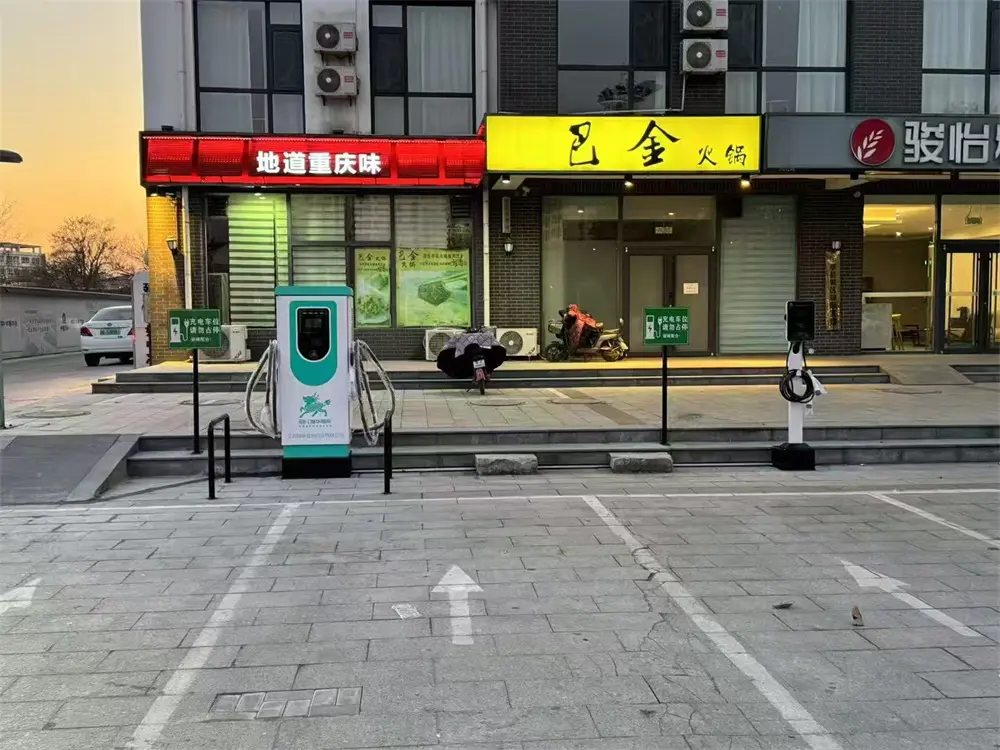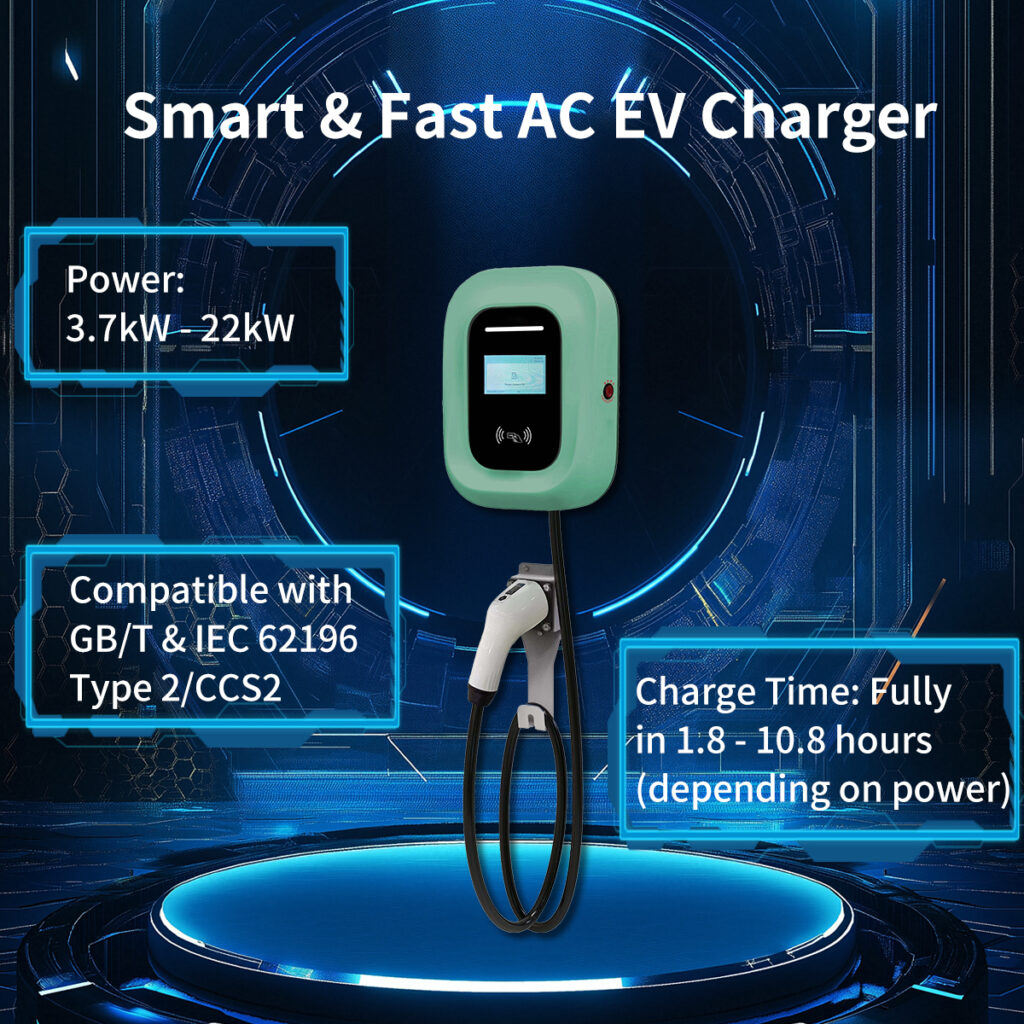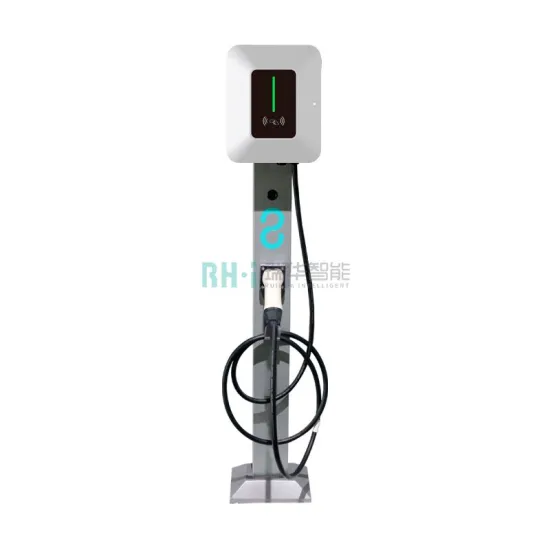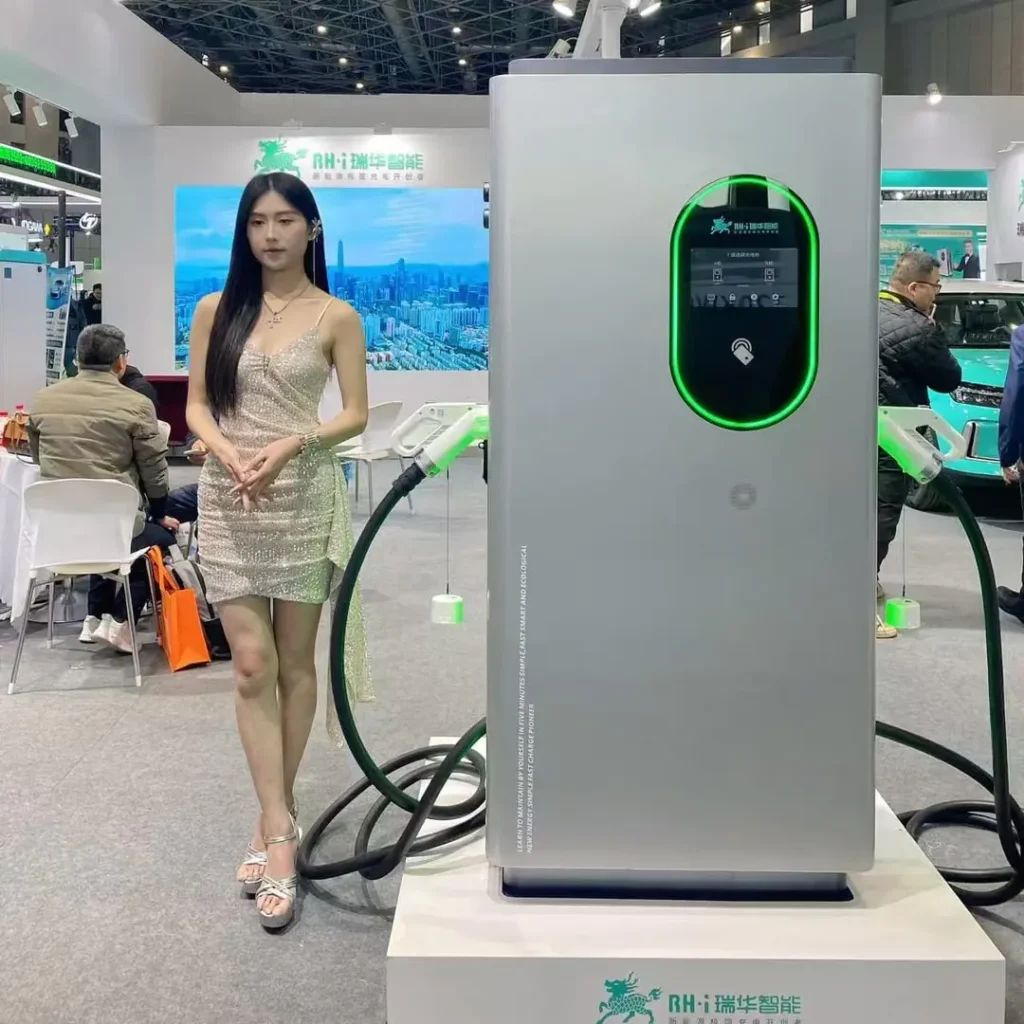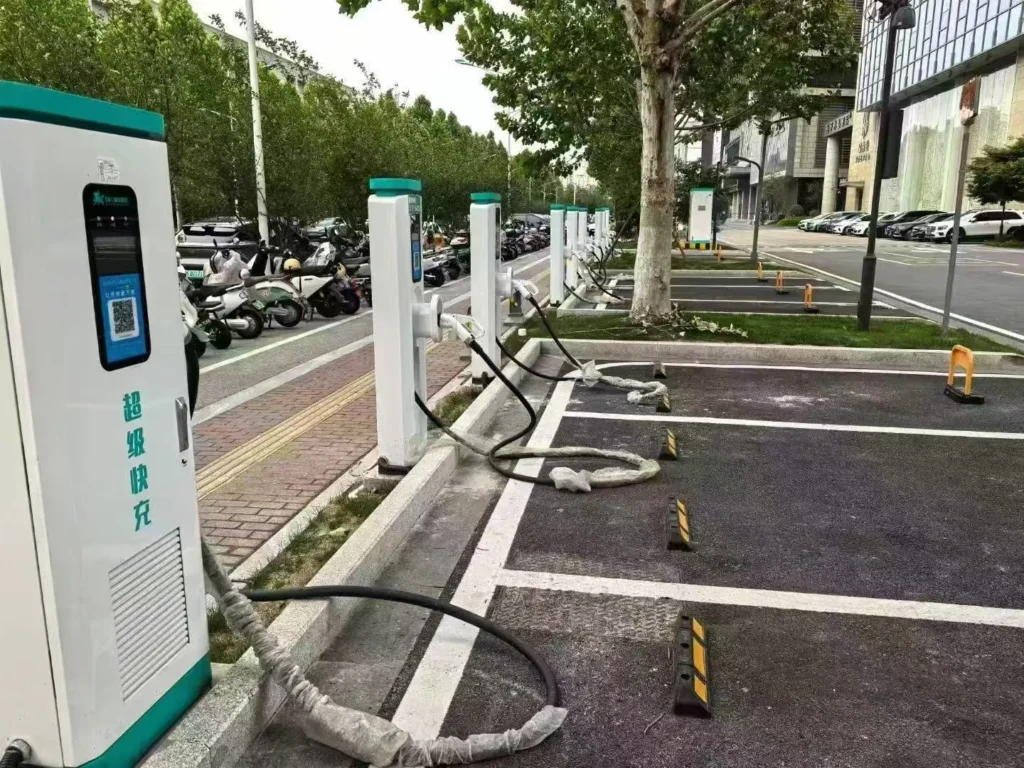Best Wall Box EV Charger, Compatible with BMW & Audi
The Wall Box EV Charger is available in 7kW, 11kW, and 21kW models, offering flexible installation options. It can be used for home charging, commercial spaces, or public areas, with various installation methods such as wall-mounted, pole-mounted, or integrated into existing setups. This versatile charger is designed for quick, safe, and reliable charging, making it an ideal solution for different environments and EV needs.
7kw/11kw/21kw Wall Box EV Charger Specifications
| Specifications | Model | RHAC7K-XC | RHAC11K-XC | RHAC21K-XC |
| Input | Powersupply | 1P+N+PE | 3P+N+PE | 3P+N+PE |
| Rated Voltage | 230V+15% | 400V+15% | 400V+15% | |
| Rated Current | 32A | 3*16A | 3*32A | |
| Frequency | 50/60 Hz | 50/60 Hz | 50/60 Hz | |
| Output | Output Voltage | 230V+15% | 400V+15% | 400V+15% |
| Maximum current | 32A | 3*16A | 3*32A | |
| Rate Power | 7kw | 11kw | 22kw | |
| Userinterface | charge connector | Type 2 cable | ||
| Cable Length | 5 m | |||
| LED Indicator | Green/blue/Red | |||
| Lco Display | 4.3 inch LcD | |||
| RFID Reader | MifarelsO/IEC14443A | |||
| Starting Methods | Plug&Play/RFiD card/App | |||
| Emergency stop | Yes | |||
| Network connection | LAN | Yes | ||
| 4G | optional | |||
| wifi | Yes | |||
| Bluetooth | Yes | |||
| OCPP | OCPP 1.6J | |||
| Safety Measures | Energy Meter | Yes | ||
| RCD | 6mADC | |||
| Ingress Protection | IP54 | |||
| ImpactProtection | lk10 | |||
| Electrical Protections | Overcurrent protection Residual current protection Surge protectionOver/Under voltage protectionOver/under Frequency protection overtemperature protection | |||
| Certification | CE/CB | |||
| Certification Standards | ENIEC 61851-1:2019,1EC61851-1:2017,EN61851-21-2:2018 | |||
| Warranty | 2 Years | |||
| OperatingConditions | Installation | Wall-mount/Pole-mount (optional) | ||
| Operating Temperature | -30°C~+50°C | |||
| Humidity | 5%~95% | |||
| Altitude | <2000m | |||
| Packaging | ProductDimension | 350*250*122 mm (H*W*D) | ||
| Package Dimension | 550*350*220 mm(L’W’H) | |||
| Net welght | 6.5 kg | 7.skg | 9.skg | |
| Gross Weight | 7.5kg | 8.5kg | 10.5kg | |
| others | Carton | |||
Compatible with BMW & Audi EV charger wall mount
CCS is a charging interface that integrates AC and DC charging functions and is widely adopted in Europe and North America and is supported by a number of automakers including BMW and Audi.
The CCS standard is capable of supporting four modes: single-phase AC charging, fast three-phase AC charging, home DC charging and ultra-fast DC charging, which means that chargers using the CCS standard can provide charging for a wide range of different makes and models of electric vehicles.
As a result, our wall EV charger is available for BMW models, as well as for Audi models, and other electric vehicles that utilize the CCS standard.
EV wall chargers are primarily used for AC charging of electric vehicles. The product should integrate charging control, human-machine interaction, communication, metering, billing, and other functions, and have good dust-proof, waterproof, windproof, and shockproof capabilities to operate safely outdoors.
Environmental Conditions:
- Operating ambient temperature: -20°C to +50°C.
- Relative humidity: 5% to 95%.
- Altitude height ≤ 2000m.
- The location should not contain explosive hazardous media, and should not be surrounded by corrosive and insulating harmful gases and conductive media.
- The location should be free from strong vibrations and impacts, strong electromagnetic interference, and the external magnetic field induction strength should not exceed 0.5mT.
- The installation vertical inclination should not exceed 5%.
Power Supply Requirements:
- The input rated voltage is single-phase 220V.
- The allowable voltage fluctuation range is ±15% of the rated voltage.
Installation Requirements:
- The minimum distance between the charging equipment and the charging parking space, as well as the building (structure), should meet the requirements for operation and maintenance, and the charging equipment should preferably be set behind two parking spaces.
- For wall-mounted charging equipment, the centerline of the device’s operating interface should ideally be 1.5m from the ground.
- Charging facilities should be set up in positions that avoid collisions, or anti-collision devices should be installed to protect the safety of charging equipment and operating personnel.
- The wall texture for wall-mounted charging piles should be hard and stable, and should not be installed on walls with thermal insulation layers or mineral wool boards.
- When encountering wall decorations such as ceramic tiles, marble, or cultural bricks, an opening should first be made in the wall with a hole saw, and then a hammer drill should be used to drill into the solid wall.
- Charging piles should preferably be installed at the rear position of the parking space, with the center distance from the inner edge of the parking space being ideally 0.2 meters, and the charging gun plug-in and removal height should ideally be 1.2 meters from the ground.
Safety and Protection:
- Charging facilities should have overload protection, short-circuit protection, and leakage protection functions.
- Charging equipment should be securely fixed, and the installation height should be convenient for operation.
Q: What is an EV wall charger?
A: A wall-mounted EV charger provides a practical and efficient way to charge your electric vehicle at home or work. It connects to your vehicle’s charging port and delivers power in various levels of intensity, making it compatible with most electric vehicle models and ensuring a quick, reliable charge.
Q: Can I install an EV wall charger at home?
A: Yes, EV wall chargers are designed for home installation. You’ll need a licensed electrician to ensure the proper wiring and installation to comply with safety standards.
Q: How do I choose the best EV wall charger for my home?
A: When choosing the best EV wall charger, consider aspects such as charging speed (kW), installation simplicity, availability of smart features like app control, and compatibility with your vehicle’s charging connector. The ideal charger should align with both your vehicle’s requirements and your typical charging routine.
Q: How much does it cost to install an EV charger?
A: On average, the home charger costs start at $500. If you already have a 240-volt spot at your place, the basic installation process might cost $200 to $500.
Related Products
7kw Home Charger, Single Phase EV Charger
Protection level: IP54
Number of guns: single gun design
Charging interface: CCS2, CHAdeMO, GB/T, etc.
11kW EV Charger, Home AC Car Charger
Protection level: IP54
Number of guns: single/dual gun design
Charging interface: CCS2, CHAdeMO, GB/T, etc.
19.2 KW EV Charger, AC Home Charger
Protection level: IP54
Number of guns: single gun design
Charging interface: CCS2, CHAdeMO, GB/T, etc.
Home 22kw EV Charger, AC Charging
Protection level: IP54
Number of guns: single gun design
Charging interface: CCS2, CHAdeMO, GB/T, etc.






